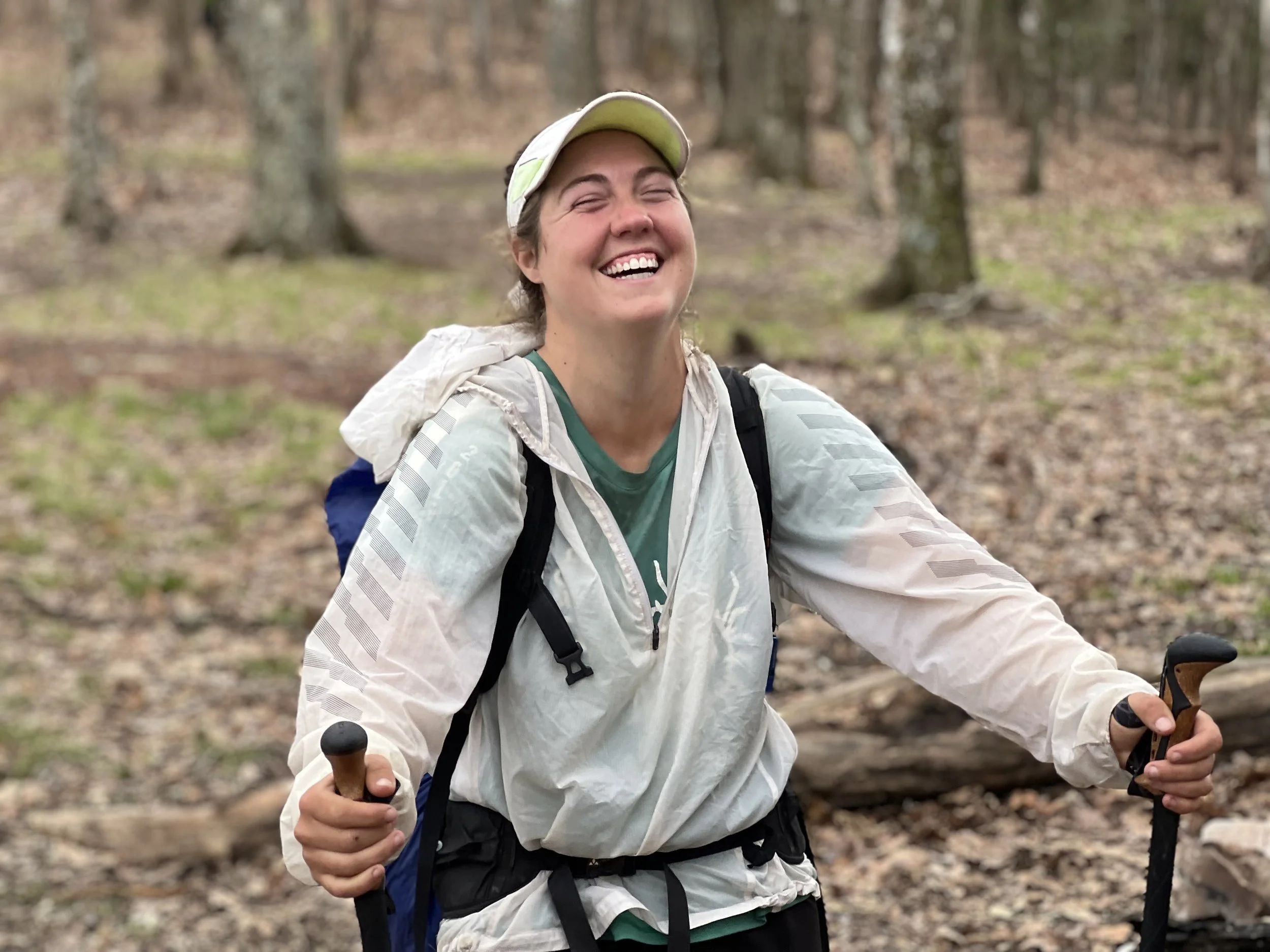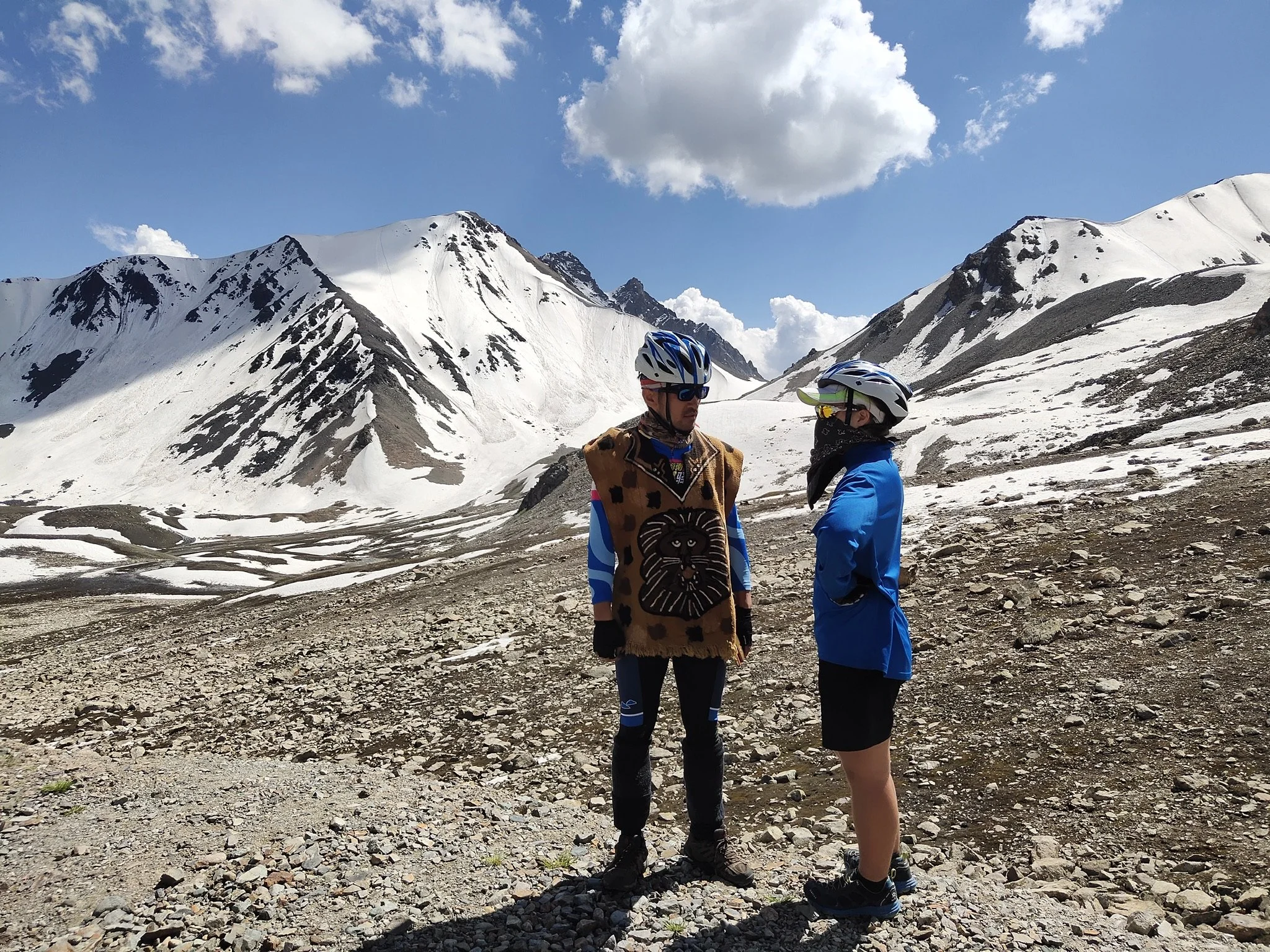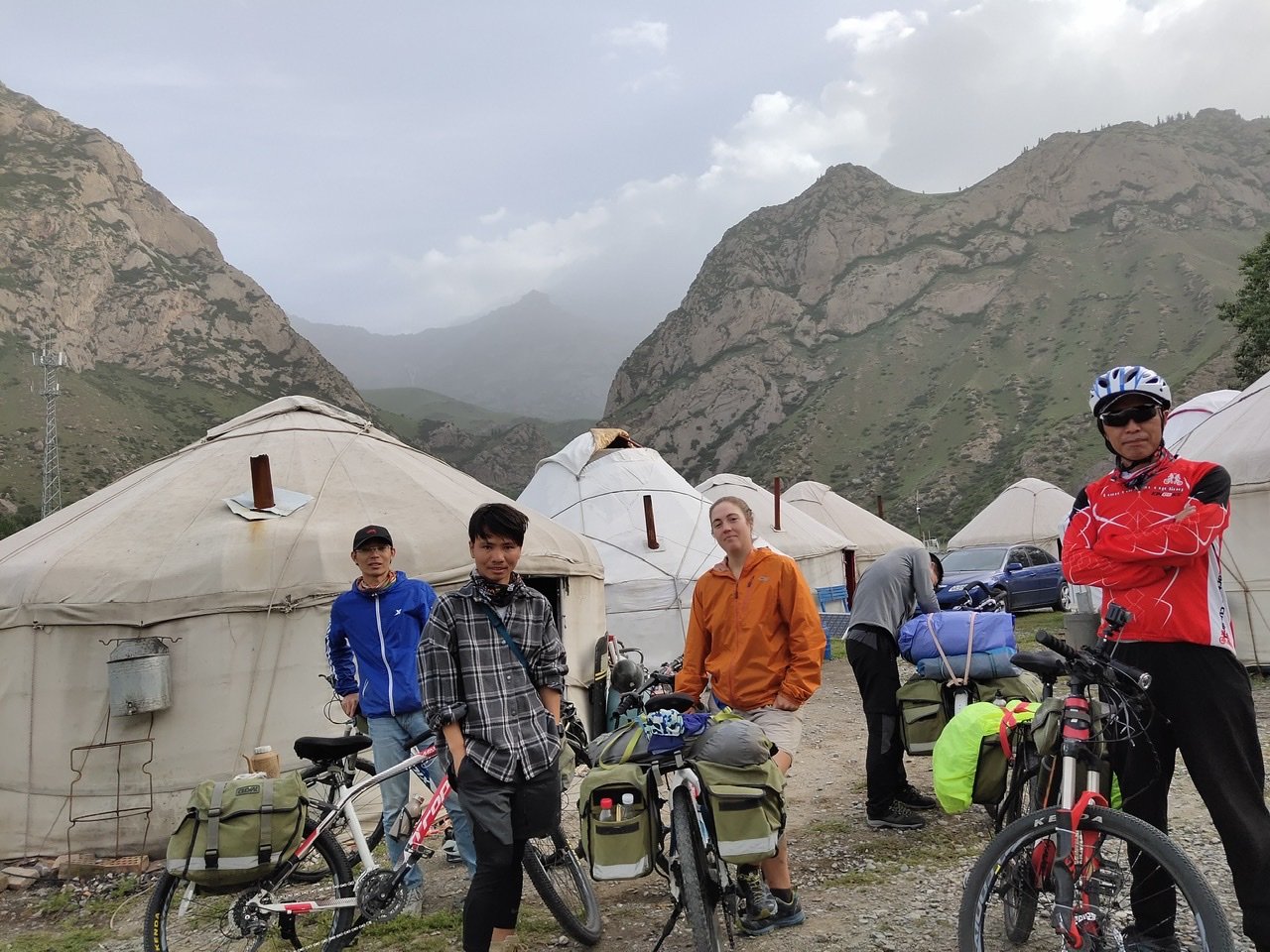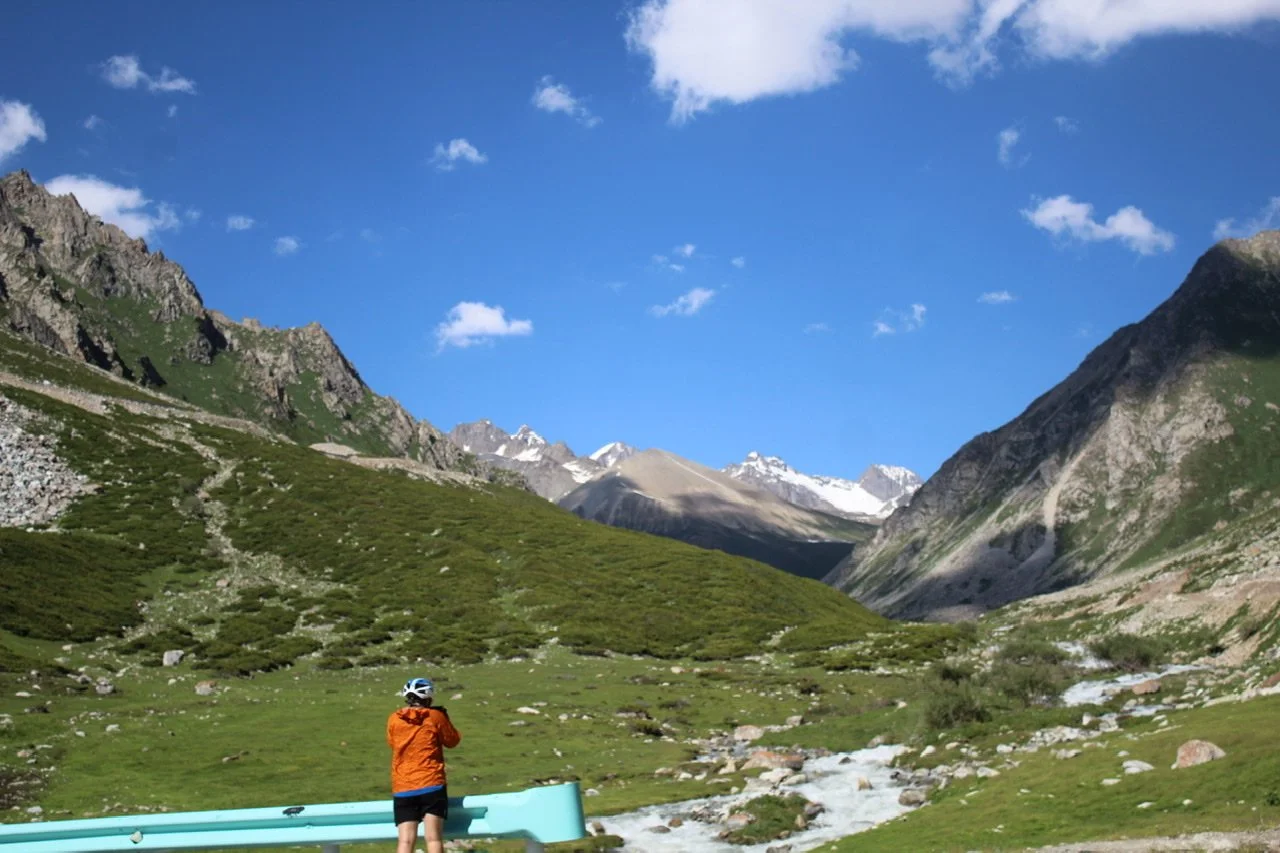Biking and beyond in XinJian
Pedaling 600 kilometers through Xinjiang: A journey of cultural connection, newfound friendships, and personal discovery.
Sarah Rhodes
(Photo/Sarah Rhodes)
From the moment we met at a hostel in eastern China, Wuju and I argued incessantly. We were both headstrong and had a yearning for adventure. So, when Wuju’s friends invited us to join them on a 600-kilometer bike ride down the Duku Highway in Xinjiang Province, we both instantly accepted.
Neither of Wuju’s two friends, Wang and Li, spoke English, and I only knew three phrases in Chinese. That left the burden of communication entirely on Wuju’s limited English. Miscommunications were constant, arising from both language barriers and cultural differences. For instance, when Wuju said, “I buy us ticket, we arrive soon,” I assumed we’d have a two- or three-hour train ride. However, what he actually meant was, “We will be on this train for the next 47 hours. Prepare yourself.” Or, when he’d say, “Put a hat on,” he really meant, “Foreigners aren’t allowed in this town. Disguise yourself so no one will force you to leave.”
Despite these communication challenges, the four of us eagerly set out from Kuytun, filled with excitement for the journey ahead. Our enthusiasm was soon tested when we hit our first police checkpoint. The three Han Chinese companions handed over their ID cards, which were promptly checked and returned. When I handed over my passport, however, the process stalled. My passport wasn’t returned right away, and panic set in. I’d never had my passport taken before, and it felt ominous, as if something had gone terribly wrong. Wuju tried to reassure me, but his efforts did little to calm my nerves.
For thirty agonizing minutes, I waited, imagining every worst-case scenario. When the officer finally handed my passport back, the relief was overwhelming. I took a deep breath as we set off again, determined to shake off the lingering unease. Not long after leaving the city, a watermelon vendor flagged us down. He gestured enthusiastically, and to my surprise, offered me a watermelon in exchange for a photo.
The valley we were biking through slowly turned into an open canyon where three layers of mountains stacked upon each other in the distance. Brown, barren desert mountains gathered in the foreground. Beyond them, lush mountains shrouded in greenery rose, and towering above all were majestic snow-capped peaks. The view became progressively blocked as the road narrowed, squeezed between towering cliffs and sheer drop-offs. A powerful river flowed through the ravine thousands of feet below, just barely audible. The towering cliffs above us demanded respect.
We wound deeper into the mountains, where the light faded quickly in the afternoon. The cliffs lost their color, turning gray and mysterious. The air chilled as we climbed higher and higher until only the bright blue and pink of Wuju’s bike shirt provided any color. Exhausted from the day’s ride, we pulled off next to a small restaurant before it got too dark and set up camp.
Spirits were still high the next morning as we began our 32-kilometer ascent over the pass. Winding up the mountain, the gray cliffs gave way to black rock and white snow. I huffed, puffed, and wheezed, battling the mountain for every breath. The higher I climbed, the more animated I became. I focused on the layers of mountains, each with unique snow patterns that gave them distinct personalities. I felt as though I knew them. A car honked, ripping my attention away from the mountains. As it passed, my friends stuck their heads out the window, smiling gleefully at me while their bikes hung off the truck. I refused the lift. It was just me and the mountain now. Enlivened, I pedaled harder and higher.
When I finally reached the summit, Wuju walked over, laughing mischievously as he pulled out a watermelon he had secretly stashed in my pannier that morning. Normally, I would have been furious at the thought of hauling such unnecessary extra weight up the steep climb. But at the top of the mountain, feeling on top of the world, I couldn’t help but laugh. We devoured the melon right there, its sweetness perfectly complementing the breathtaking view.
Crossing over the pass was like stepping through a portal. The snow and rock vanished, replaced by vibrant grasses. Red, purple, and yellow flowers danced across the fields, while turquoise streams rushed down in tiny torrents all around. The pavement was so smooth it felt as though my tires barely touched it. I could see the road ahead winding down the mountain in tight switchbacks, then flattening out through the valley for endless miles until it disappeared into the emerald fields. Descending that mountain was the closest I’ve ever come to flying.
We coasted down the road, our peace only momentarily interrupted by another police checkpoint. I relinquished my passport, and Wuju handled the conversation. Forty-five minutes later, we were back on the road, pedaling through fields of flowers bathed in golden light. We followed the river toward the sunset and eventually arrived at our hotel, where the police were waiting for me.
They ordered me to leave and hired a car to take me to a special foreigner hotel. Fatigued, irate, and confused, I pressed Wuju for an explanation.
“It’s for your protection,” he said.
“So it’s safe for you but not for me?” I snapped.
He gave no response. As with many of my conversations with Wuju, I wasn’t sure if he didn’t understand or simply didn’t want to respond. I knew it wasn’t for my protection, but I was clueless as to the real reason.
The police, unfortunately, did not arrange a car for the morning, so we hitchhiked 50 kilometers back to our bikes and companions, then set out across the grassy flats. We were in sheep country now. I had eaten so much mutton over the past few weeks that my sweat started to smell like it. Riding alongside the sheep felt oddly appropriate.
A man flagged us down and offered us mutton soup. We laughed and joked as he introduced us to his family. His young daughter insisted that I sing to her because she wanted to be a singer. I resisted; I am no singer. But she was persistent, and eventually, I relented. She didn’t ask for an encore but took me to sit alongside a cliff to look out over the mountains. We spoke in gestures and expressions, and it ended up being surprisingly hard to say goodbye. She lamented a lost friend, and I mourned the knowledge that she might never have the opportunities I had taken for granted.
(Photo/Sarah Rhodes)
(Photo/Sarah Rhodes)
We climbed higher into the mountains until we reached a two-kilometer-long tunnel. With no lights in the tunnel or on our bikes, it felt like a death trap, but we had no choice. It was either go through or turn back. By some stroke of luck, we made it out alive. We stopped at a small pullout to rest, and cars began to stop—not for the view, but to take pictures with me. Before I knew it, I was surrounded by a group of 15 people, each waiting their turn. When my "fans" finally dispersed, we continued our descent, leaving behind the alpine fields and entering a thick pine forest. The fresh aroma of pine replaced the ever-present scent of sheep, and for a moment, it was pure bliss.
Wuju was far ahead of us when Li got a flat tire. We tried to fix it, but Wuju had the only patch kit. With no other option, Li rode slowly on the flat tire until we caught up with him. Exiting the forest, we turned onto a heavily trafficked road. Because of the delay, it was now completely dark, and massive logging trucks thundered past us. My nerves were on edge; all I wanted was to get off this road and into bed. My heart sank as we neared another police checkpoint.
Unlike the previous checkpoints, this time the police took me into a separate room. They tried to communicate using a translation app on their phones. My nerves tightened as they asked what I was doing, where I was going, and why. My simple answers of "biking," "hotel," and "why not" seemed to irritate them. Finally, I was released, my passport returned, and Li’s tire was fixed. It was well past midnight when we finally piled into the yurt, worn and dejected.
The next morning was rainy and overcast, but the flowers lining the stream seemed even more vibrant, their petals sparkling with water droplets. The police checkpoint heading into town, however, was just as tiresome as ever. By now, though, I was used to the process, and it no longer felt intimidating. After checking into our yurt, Li and I decided to head to the store for snacks. I disguised myself in sunglasses, a hat, a face cover, and long sleeves, but I didn’t make it more than 100 meters before a police car pulled up next to me.
(Photo/Sarah Rhodes)
They made a few phone calls, looking at my passport with worried eyes. As usual, 30 minutes later, they returned it. I thought everything was fine until Li typed out a message on his translator: "They say you can’t stay here. They will look for somewhere else for you to stay and call me when they know."
Tears welled up in my eyes as I ran down the street, leaving Li stunned. I felt frustrated, angry, and confused. Why was this happening? I hadn’t done anything wrong. Feeling helpless, I cried. When I finally composed myself and returned to the yurt, Li was waiting with a mischievous grin. He proudly showed me a translation on his phone: "The police called me. I said I don’t know where you are."
It took courage for him to defy the police, and my gratitude for his act of kindness was boundless. My affection for these men, whom I had only just met and with whom I could barely communicate, was indescribable.
The grass was less green that day, and the air noticeably drier as we passed through an expansive bowl surrounded by mountains that were barely discernible in the distance. The flat road was a welcome break from the preceding inclines. We made good time and entered a small village near a beautiful lake. I would have liked to visit the lake, but given the events of the previous night, we decided it was best for me to stay in the yurt. My friends brought back meat skewers, beer, sunflower seeds, and sweets so we could have a little party together. I had come to rely on them so much. They defended me, protected me, and helped me without hesitation. Sometimes I wondered why they stood by me after all the trouble I’d caused, but in that moment, I realized it was because, for this short time, we were one another’s little dysfunctional family.
(Photo/Sarah Rhodes)
On the last day of riding, we left the calm of the mountains behind and entered the dusty desert. Cars whizzed by, and water was scarce, but the beauty of the landscape was undeniable. Bright red spires rose out of the ground like ancient sentinels, their fortitude a testament to the wind and rain that had shaped them over time. The intricate cracks and crevices of the badlands were less showy than the grand mountains, but they were no less awe-inspiring.
As we passed through the badlands, I felt as though I could keep biking these roads forever. Yet, part of me was ready to leave behind the constant suspicion, the relentless police checkpoints, and the lurking fear of persecution. I would miss bathing in cold mountain streams, soaring through fields of wildflowers, and, yes, even the mutton. But most of all, I would miss my companions. As we pedaled on, they turned to check on me. Our eyes met for only a moment, but in that brief glance, I knew I would miss them most of all.









